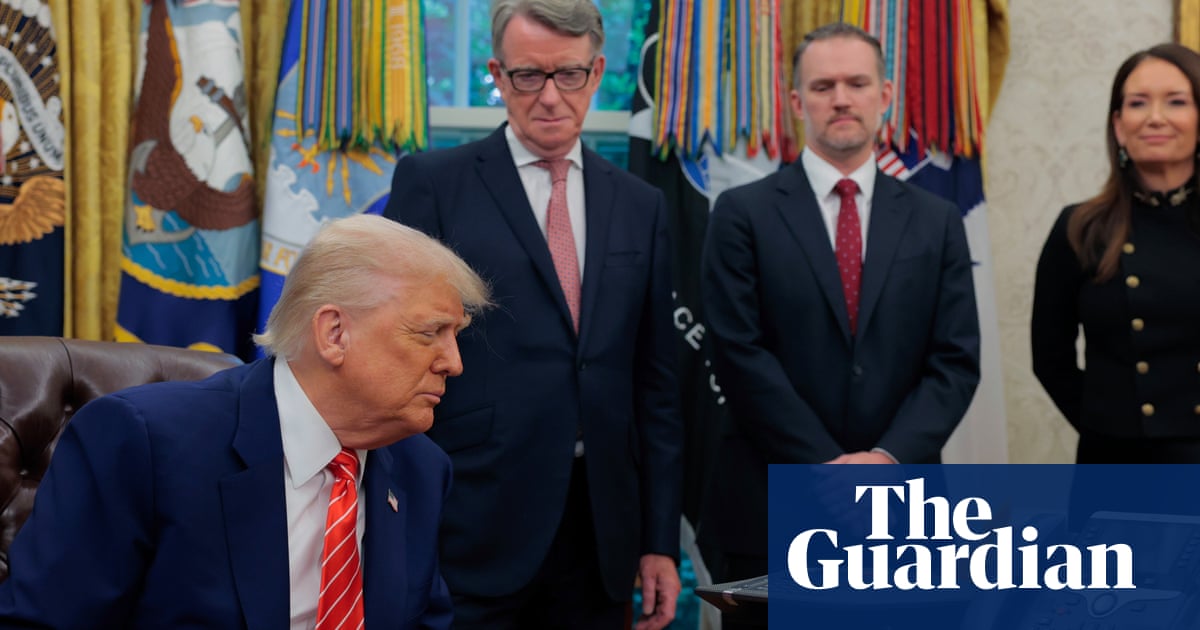The White House has signalled that the UK will be spared the 50% steel and aluminium tariffs due to come into effect on Wednesday.
In astatement, the US president, Donald Trump, said he had decided to “provide different treatment” to the UK after a deal that was struck between Washington and London last month. The executive order signed by Trump on Tuesday evening will still raise import taxes for US firms buying from other countries.
Levies will remain at 25% for imports from Britainbut the higher 50% rate could kick in from July if the administration “determines that the United Kingdom has not complied with relevant aspects” of the deal.
The 50% tariff rate more widely is due to come into force from 12.01am Washington DC time on Wednesday, which is shortly after 5am in the UK.
A UK government spokesperson said: “The UK was the first country to secure a trade deal with the US earlier this month and we remain committed to protecting British business and jobs across key sectors, including steel as part of our plan for change.
“We’re pleased that as a result of our agreement with the US, UK steel will not be subject to these additional tariffs.
“We will continue to work with the US to implement our agreement, which will see the 25% US tariffs on steel removed.”
Last month,the UK and US agreed a trade dealdescribed as a “breakthrough” by the prime minister, Keir Starmer, which included relief on the steel and aluminium tariffs, but the implementation has not yet been finalised.
The deal was greeted positively by Paul Nowak, general secretary of the TUC, who said the deal “takes us back from the brink and many workers will breathe easier as a result” amid fears that thousands of British jobs could be lost if thesteel and aluminium tariffscame into full force.
The business secretary, Jonathan Reynolds, met White House trade representative Jamieson Greer in Paris on Tuesday.
According to the Department for Business and Trade, Reynolds and Greer discussed a desire to implement the deal struck between London and Washington as soon as possible, and committed to working closely to make it happen.
The White House press secretary, Karoline Leavitt, was asked if there was a text of the full deal ready to be released, and told reporters on Tuesday: “There’s most definitely text with this deal, there is language that this side has seen.
“You’ll have to ask the UK parliament why they haven’t seen it from their own government, I obviously can’t answer that question.”
